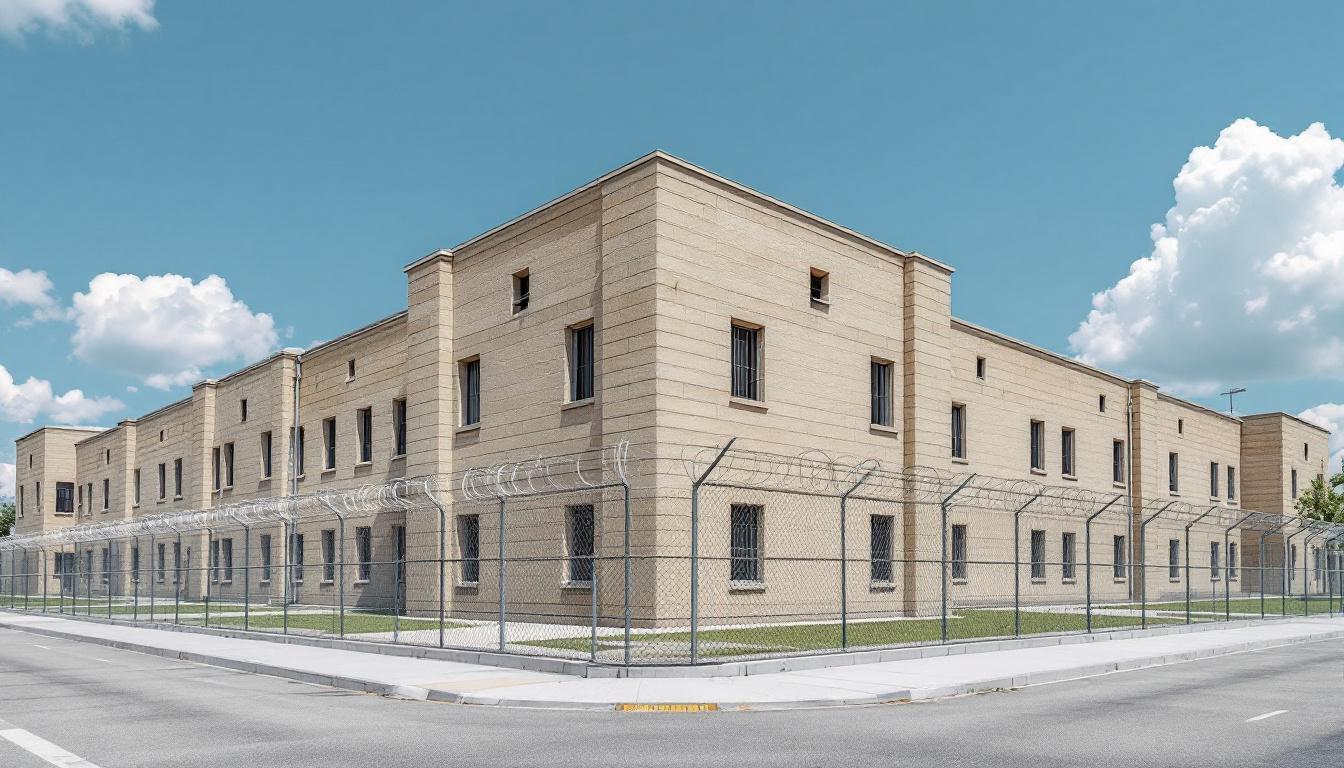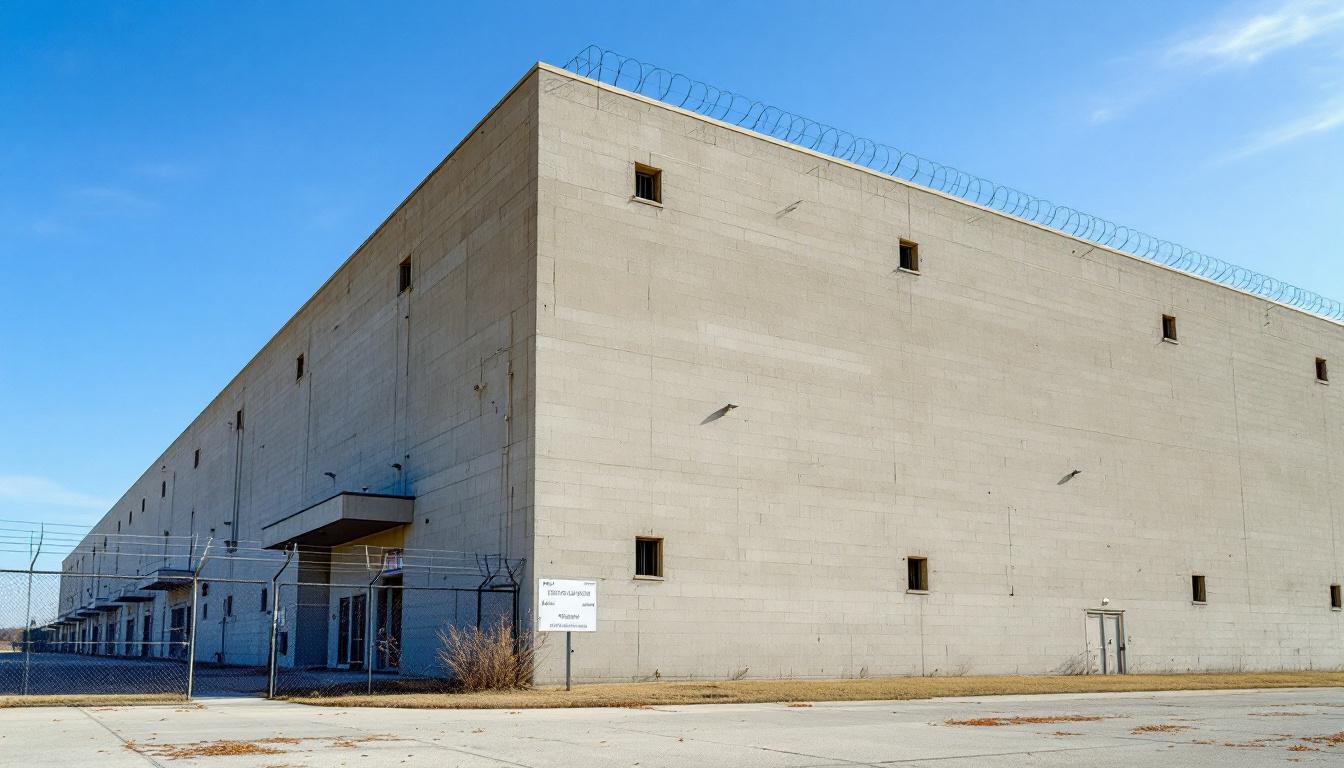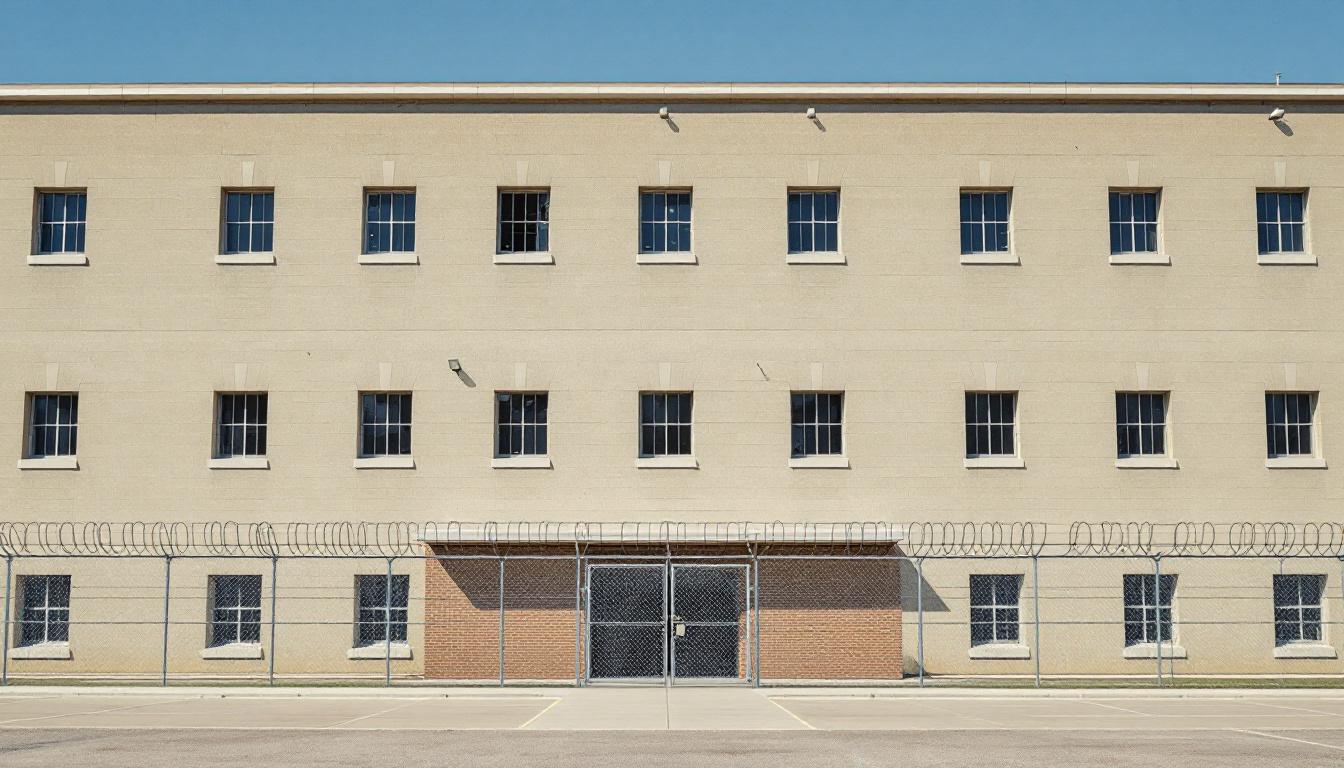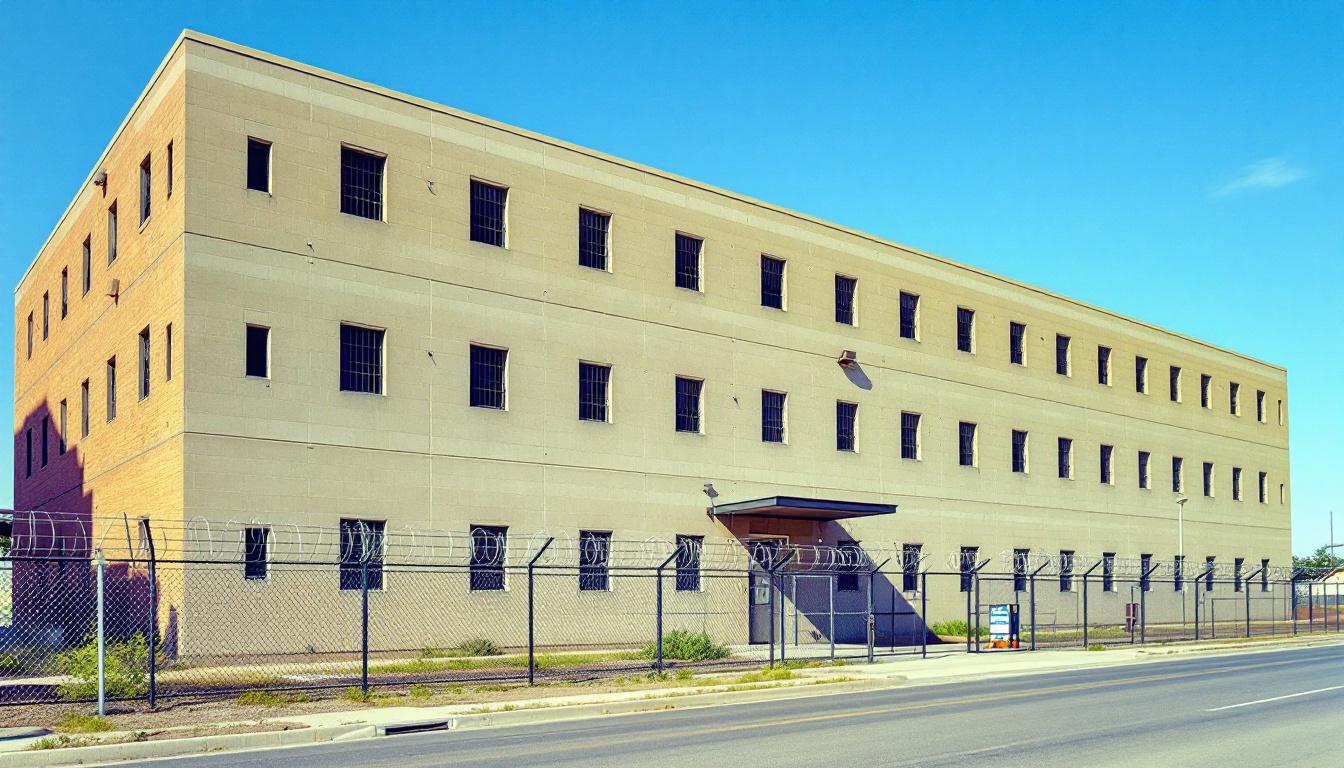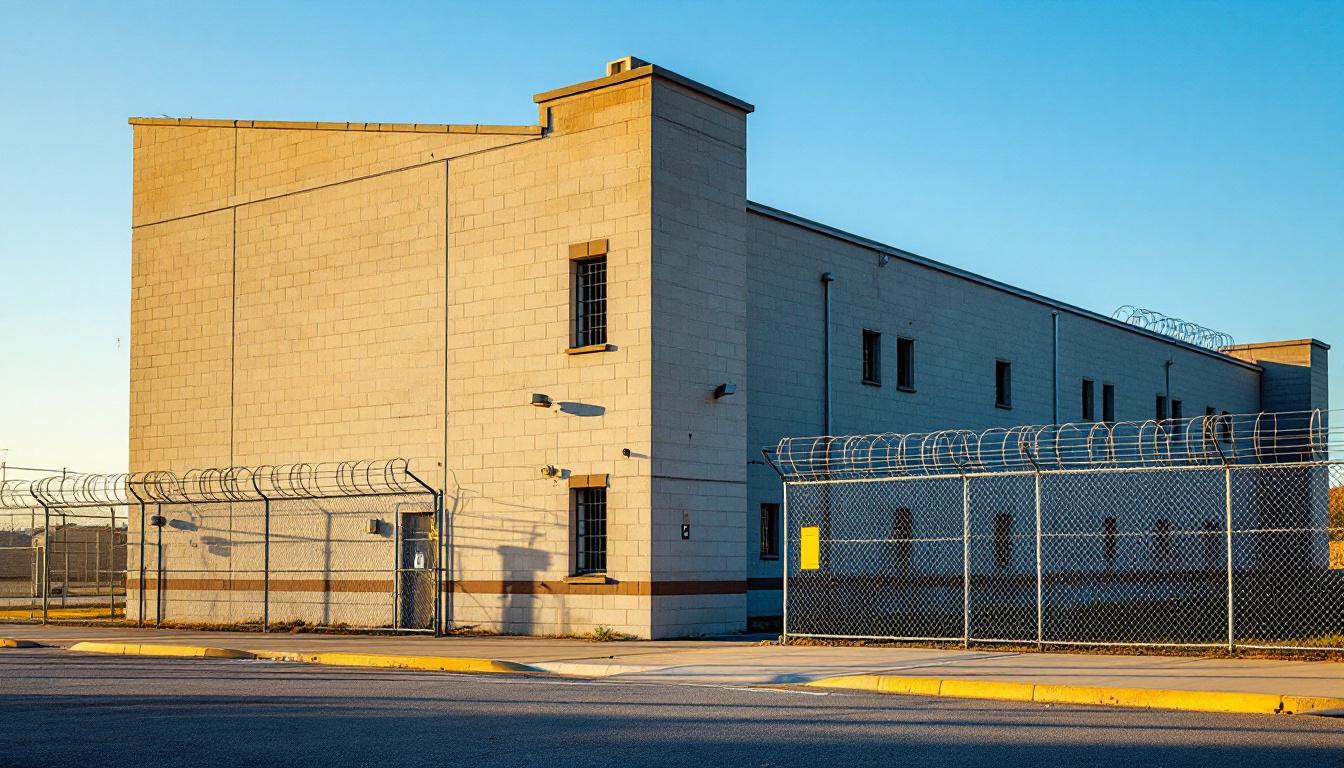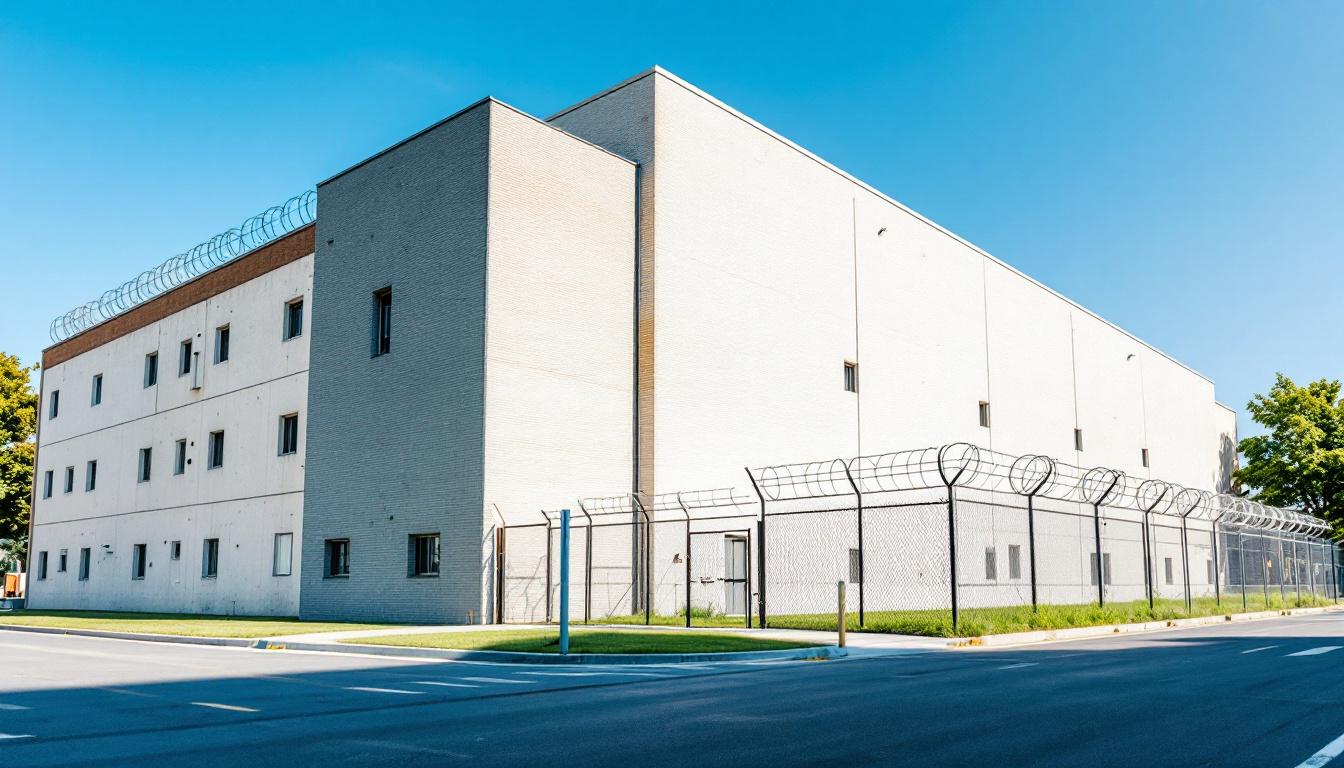
Quick Navigation
How to contact an inmate at Ottawa County Sheriff
This comprehensive guide will walk you through how to connect with an inmate at Ottawa County Sheriff. Follow the steps below to find an inmate and send letters and photos:
- Search for the inmate using our search tool below
- Create your account or log in to Penmate
- Write your message (up to 6,000 characters)
- Send instantly - inmates receive printed copies daily
Find an Inmate
Search for an inmate to start communicating today
Tip: You can search by first name, last name, or inmate ID number
To contact a person at Ottawa County Sheriff start by searching for the person on the official facility website. Perform a search by following these steps:
- Step 1: Enter their first name and last name into the search form and click "Search"
- Step 2: Locate their inmate record
- Step 3: Write down their Inmate ID and any housing information provided
Important! Be sure to enter the person's full name. Nicknames should not be used.
How to Send Messages to Inmates

You can use your phone or computer to send emails, letters, and photos to an inmate. Messages are sent electronically to inmate tablets or kiosks at the facility. If you would like to send a message, start by searching for an inmate at Ottawa County Sheriff.
Sending Photos and Postcards

A great way to send love and support to a loved one at Ottawa County Sheriff is to send photos and postcards. It only takes a few minutes to send photos from your phone and it makes a huge difference. You can also mail postcards with words of support and inspiration, or design your own postcard for special moments like birthdays and holidays.
Important! Be sure not to send any explicit photos or they may not be approved by the facility. You can also use a photo printing app like Penmate to make sure your photos are printed at the correct size (4x6 or 3x5) and are mailed according to the rules and regulations of Ottawa County Sheriff.
Frequently asked questions about Ottawa County Sheriff
-
How long does it take to deliver a message?
If you're sending an email message your letter is usually delivered within 24-48 hours. For messages sent via mail you should expect delivery within 3-7 days. All messages will need be approved by Ottawa County Sheriff.
-
How much does it cost to send a message to Ottawa County Sheriff?
You can send a message free using your phone or mail a message via USPS for the price of a $0.60 stamp and envelope. You can also purchase credits or e-stamps from services starting at $1.99.
-
What services can I use to contact an inmate at Ottawa County Sheriff?
Penmate
You can use Penmate to send letters and photos to an inmate from your phone. It's an easy way to stay in touch during your loved one's incarceration. Use the inmate locator to find an inmate's location and contact information, then you can send messages within a few minutes.
Securus messaging
Securus may be another option for communicating with an inmate at Ottawa County Sheriff. You can create a friends and family account and purchase credits to send messages. All messages will be reviewed and must be approved by the facility.
JPay
Some county jails and state prisons may support sending messages with JPay. You must register an account with the system, find your loved one, and purchase stamps to send messages. For some locations you can also attach photos.
Smart Jail Mail
You may also check if Smart Jail Mail is available at Ottawa County Sheriff. Smart Jail Mail is operated by Smart Communications and has contracted with some state and county jails. After purchasing credits, your messages and photos are sent to the facility, printed out, and then handed out to your loved one.
-
What is the mailing address of Ottawa County Sheriff?
Mailing address:
Ottawa County Sheriff
28 B St SE
Miami, OK 74354
Phone: (918) 542-2806 -
What are the visiting hours at Ottawa County Sheriff?
Visiting hours at Ottawa County Sheriff vary by housing unit and security level. Generally, visits are scheduled on weekends and holidays, with some facilities offering weekday visits. Contact the facility directly at (918) 542-2806 or check their website for the current visiting schedule. Visits typically last 30-60 minutes and must be scheduled in advance.
-
What items are prohibited when sending mail to Ottawa County Sheriff?
Prohibited items typically include: cash, personal checks, stamps, stickers, glitter, glue, tape, staples, paperclips, polaroid photos, musical or blank greeting cards, hardcover books, magazines with staples, and any items containing metal or electronics. Only send letters on plain white paper with blue or black ink. Photos must be printed on regular photo paper (no Polaroids). Always check with Ottawa County Sheriff for their specific mail policies.
-
How do I send money to an inmate at Ottawa County Sheriff?
You can send money to an inmate at Ottawa County Sheriff through several methods: 1) Online using JPay, Access Corrections, or the facility's approved vendor, 2) Money orders mailed directly to the facility with the inmate's name and ID number, 3) Kiosks located in the facility lobby, or 4) Over the phone using a credit or debit card. Fees vary by method, typically ranging from $2.95 to $11.95 per transaction.
-
Can I schedule a video visit with an inmate at Ottawa County Sheriff?
Many facilities now offer video visitation as an alternative to in-person visits. At Ottawa County Sheriff, video visits may be available through services like Penmate, Securus Video Connect, GTL, or ICSolutions. Video visits typically cost $10-20 for 20-30 minutes and must be scheduled in advance. You'll need a computer or smartphone with a camera and reliable internet connection. Contact the facility for their specific video visitation policies and approved vendors.
-
What identification do I need to visit an inmate at Ottawa County Sheriff?
All visitors must present valid government-issued photo identification such as a driver's license, state ID, passport, or military ID. Minors must be accompanied by a parent or legal guardian who can provide the minor's birth certificate. Some facilities require visitors to be on the inmate's approved visitation list, which may require a background check. Contact Ottawa County Sheriff for specific ID requirements and visitor approval procedures.
-
How can I find out an inmate's release date?
To find an inmate's release date at Ottawa County Sheriff, you can: 1) Use the online inmate search tool if available, 2) Call the facility's records department, 3) Contact the inmate's case manager or counselor, or 4) Have the inmate provide this information during a call or visit. For privacy reasons, some facilities only release this information to immediate family members.
Facility Overview
Official Website

About Ottawa County Sheriff
Serving the correctional needs of Ottawa County, the Ottawa County Jail, OK operates as a vital component within the region’s broader justice system, maintaining secure custody while addressing the complex challenges facing those in its care. Located in Miami, Oklahoma, this OK correctional facility functions within the established framework of county-level corrections that characterizes much of the south region’s approach to local law enforcement and judicial support.
The facility’s development reflects the historical evolution of correctional practices in northeastern Oklahoma, where county jails have traditionally balanced immediate public safety concerns with the practical realities of managing diverse inmate populations. As part of the regional corrections network, Ottawa County Jail typically coordinates with surrounding jurisdictions and state-level agencies to ensure appropriate placement and resource allocation for individuals at various stages of the legal process. The institution generally maintains standard county jail operations, which may include housing pre-trial detainees, serving sentenced individuals with shorter terms, and managing transfers to state facilities when circumstances require.
Programs and services for those incarcerated services often focus on maintaining institutional safety while providing basic educational opportunities, substance abuse awareness, and reentry preparation that can benefit both individuals and the broader Miami community. The facility’s position within Ottawa County’s justice infrastructure typically involves collaboration with local courts, law enforcement agencies, and community organizations to support rehabilitation efforts where possible, though specific programming may vary based on available resources and population needs.
Programs & Services
Comprehensive skill development opportunities await those incarcerated at Ottawa County Jail, where structured programming emphasizes personal transformation and practical preparation for community reintegration. The facility’s multifaceted approach recognizes that meaningful change occurs through sustained engagement with diverse learning experiences, creating pathways for individuals to develop both foundational competencies and specialized capabilities within a secure environment.
Educational advancement forms the cornerstone of developmental offerings, with structured learning environments that may furnish basic literacy enhancement alongside more comprehensive academic programming. Those incarcerated often benefit from curriculum designed to address varying educational backgrounds and learning objectives. In addition to this academic foundation, vocational training opportunities typically include hands-on instruction in construction trades, providing participants with marketable skills and industry-relevant experience that can facilitate successful workforce entry upon release.
Support services complement these practical skill-building initiatives through comprehensive programming that addresses personal development and spiritual growth. Faith-based programs often provide structured guidance and community connection, while employment readiness offerings may furnish essential job-seeking skills, interview preparation, and workplace behavior training. Religious services typically serve as both spiritual support and community-building opportunities, creating structured environments where those incarcerated can explore personal values and develop positive peer relationships within the facility’s secure framework.
Daily Life & Visitation

Family connections and social bonds remain central to the experience of those incarcerated at Ottawa County Jail, where maintaining relationships with loved ones helps provide stability during a challenging time. The daily routine now revolves around structured meal times, housing unit activities, and scheduled programming that furnishes both individual growth opportunities and community interaction. Those incarcerated typically begin their day with early morning counts and breakfast service, followed by various activities that may include educational programming, work assignments within the facility, or recreational periods that allow for social interaction among residents.
Living accommodations generally consist of shared housing units where those incarcerated develop informal support networks and daily routines together. The dining arrangements typically bring residents together for communal meals served at designated times, creating natural opportunities for conversation and relationship building. In addition to this structured social time, recreational activities may include television viewing areas, card games, and reading materials that help pass time while fostering connections between residents who share similar interests or backgrounds.
Despite this controlled environment, the facility regularly provides opportunities for those incarcerated to maintain crucial outside connections through scheduled visitation periods and telephone access. Work assignments within the facility often include kitchen duties, cleaning responsibilities, and maintenance tasks that not dedicated provide structure but also allow residents to contribute meaningfully to their temporary community. Programming schedules may furnish educational opportunities, substance abuse counseling, or life skills workshops that prepare individuals for successful reintegration while creating bonds with others facing similar challenges in their journey toward rehabilitation.
Ready to Connect?
Start communicating with your loved one today
Search for an Inmate

